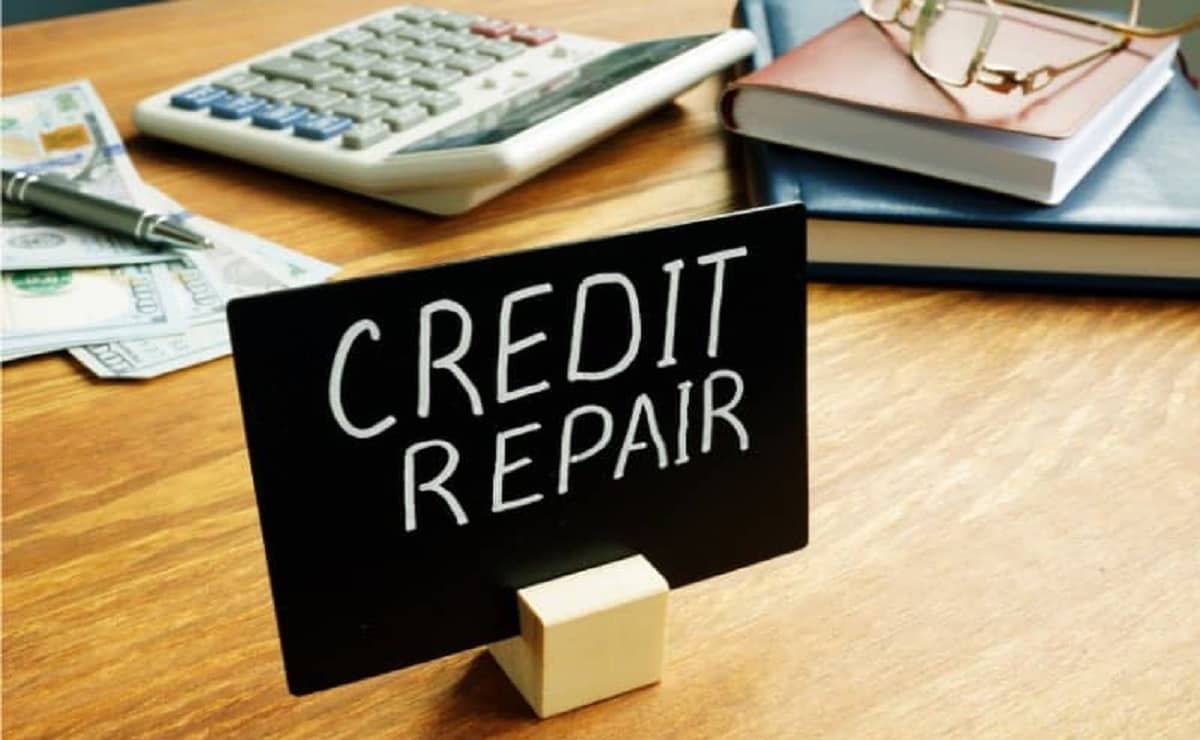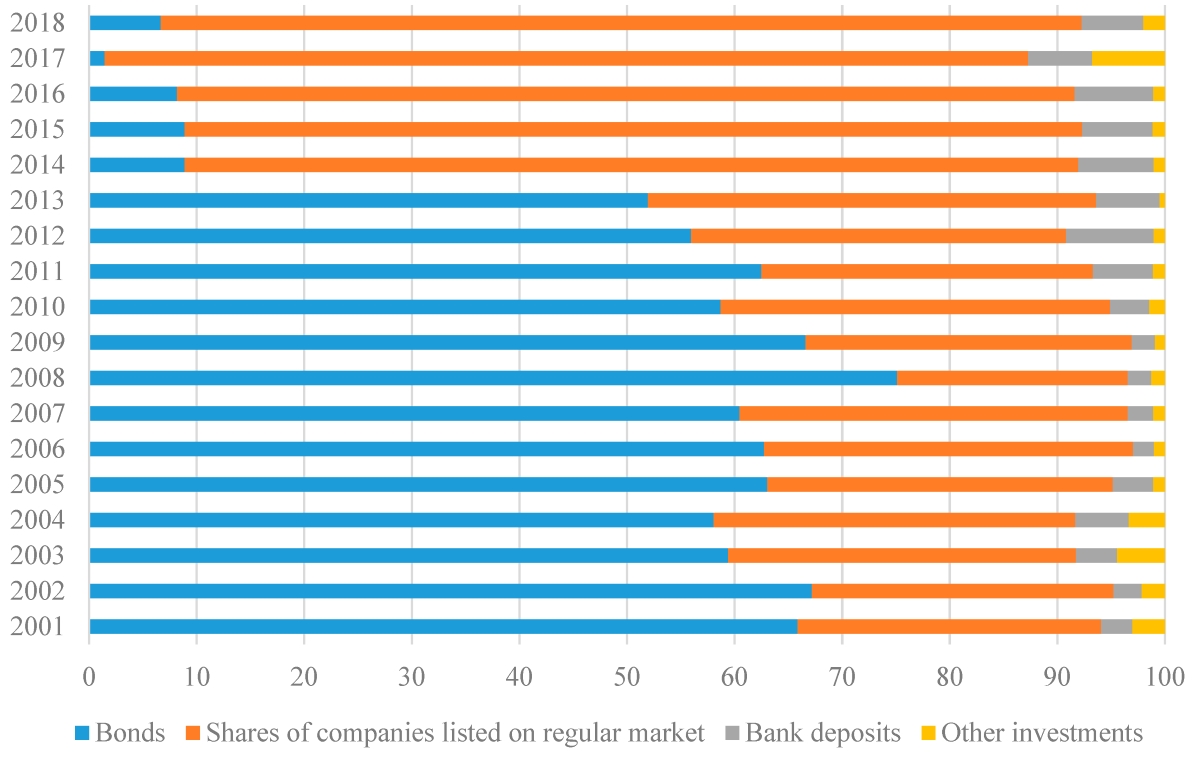

Finance
How Can I Become A Credit Repair Specialist
Modified: March 1, 2024
Learn how to become a credit repair specialist and gain expertise in finance with our comprehensive guide. Start your journey today!
(Many of the links in this article redirect to a specific reviewed product. Your purchase of these products through affiliate links helps to generate commission for LiveWell, at no extra cost. Learn more)
Table of Contents
Introduction
Welcome to the world of credit repair! In today’s financial landscape, credit is more important than ever. It plays a pivotal role in obtaining loans, securing favorable interest rates, and even determining job opportunities. As a credit repair specialist, you have the power to help individuals and businesses improve their credit profiles, giving them a chance to achieve their financial goals.
But what exactly does a credit repair specialist do? In a nutshell, you will work with clients to identify and resolve issues on their credit reports that may be negatively impacting their credit scores. These issues can range from errors and inaccuracies to outdated information or even identity theft.
As a credit repair specialist, you will serve as a trusted advisor, guiding your clients through the complex process of disputing errors, negotiating with creditors, and implementing strategies to improve their credit scores. The goal is to help your clients achieve a better financial future by removing the barriers that prevent them from accessing credit at affordable rates.
While there is no specific educational requirement to become a credit repair specialist, it is essential to have a strong understanding of credit laws, regulations, and industry best practices. This knowledge will equip you with the tools needed to effectively navigate the credit repair process and provide exceptional service to your clients.
In this article, we will explore the steps to becoming a credit repair specialist, including the education and training you need, obtaining certification, building experience, networking and collaboration opportunities, marketing yourself as a specialist, providing exceptional customer service, and staying updated with industry changes. So, let’s dive in and explore the exciting world of credit repair!
Understanding Credit Repair
Credit repair is the process of identifying and resolving issues on a client’s credit report to improve their creditworthiness. It involves reviewing the client’s credit history, identifying inaccuracies or errors, and taking appropriate actions to correct them. The ultimate goal is to help the client achieve a higher credit score, which opens doors to better financial opportunities and lower interest rates.
One of the key aspects of credit repair is understanding how credit scores are calculated. Credit scores are typically generated using algorithms that analyze a person’s credit history, payment history, debt utilization, length of credit history, and other factors. A credit repair specialist must have a deep understanding of these factors and how they impact a credit score.
Once the credit specialist has identified any errors or inaccuracies on the client’s credit report, they will need to initiate the dispute process with the credit bureaus. This involves submitting documentation and supporting evidence to prove the inaccuracies and requesting that they be removed or corrected. It may also involve contacting creditors and negotiating settlements or payment plans to resolve outstanding debts.
It’s important for credit repair specialists to follow ethical guidelines and comply with federal and state regulations, such as the Fair Credit Reporting Act (FCRA). This legislation ensures that consumers have the right to accurate and fair credit reporting and provides guidelines for disputing inaccurate information.
As a credit repair specialist, you will also need to educate your clients on good credit habits and provide them with tools and resources to manage their credit effectively. This may include advising them on budgeting, debt management, and responsible credit card usage.
Understanding the intricacies of credit repair is essential for success in this field. It requires a combination of knowledge, analytical skills, and a commitment to helping clients achieve their financial goals. With a solid understanding of credit repair, you will be well-equipped to guide clients through the process of improving their credit profiles.
Education and Training
While there are no specific educational requirements to become a credit repair specialist, it is highly recommended to pursue relevant education and training to enhance your skills and knowledge in the field. Gaining a strong foundation in credit repair principles and practices will make you more competent and trustworthy in the eyes of your clients.
One option is to pursue a degree or certification in a related field such as finance, accounting, or business. These programs can provide you with a solid understanding of financial concepts and principles, which will be valuable in your credit repair career. Additionally, you may consider taking courses or workshops specifically focused on credit repair offered by reputable institutions or industry organizations.
Another avenue to gain knowledge in credit repair is through self-study. There are numerous books, online resources, and tutorials available that can teach you the fundamentals of credit repair. These resources can provide insights into credit laws, dispute strategies, and credit scoring models. However, it’s important to verify the credibility and accuracy of the sources you rely on for information.
Additionally, consider joining professional associations or organizations dedicated to credit repair or financial services. These groups often provide access to training materials, webinars, and networking opportunities that can help you stay updated on industry trends and best practices. Membership in such organizations can also enhance your credibility as a credit repair specialist.
As you pursue your education and training, it’s crucial to stay informed about current credit repair laws and regulations. The credit industry is constantly evolving, and understanding the legal framework that governs credit repair will ensure that you are operating within ethical guidelines.
In summary, while formal education is not a prerequisite for becoming a credit repair specialist, it is strongly recommended to pursue relevant education and training to gain a strong foundation in credit repair principles and practices. Whether through a degree program, certification courses, self-study, or professional associations, investing in education and training will set you apart as a knowledgeable and skilled credit repair specialist.
Obtaining Certification
Obtaining a certification as a credit repair specialist can greatly enhance your credibility and expertise in the field. While certification is not required to work as a credit repair specialist, it can give clients peace of mind knowing that you have demonstrated a certain level of knowledge and professionalism.
There are several organizations and associations that offer certification programs for credit repair specialists. One prominent certification is the Credit Repair Cloud Certified Professional program. This program provides comprehensive training on credit repair and includes modules on credit laws, dispute strategies, and business operations. Upon successful completion of the program, you will receive a certification that you can proudly display to your clients.
Another reputable organization that offers certification is the National Association of Credit Services Organizations (NACSO). Their certification program covers a wide range of topics including credit scoring, legal compliance, and business ethics. Attaining certification from a recognized organization like NACSO can further establish your reputation as a qualified credit repair specialist.
When choosing a certification program, it’s important to ensure that it covers the essential aspects of credit repair and is recognized within the industry. Look for programs that have a solid curriculum, experienced instructors, and a good reputation among professionals in the field.
In addition to formal certifications, there are also other qualifications you can obtain to bolster your expertise. For example, you can become a certified FICO professional by completing the FICO certification program. This certification signifies your proficiency in understanding and analyzing credit scores using the FICO scoring model, which is widely used by lenders to assess creditworthiness.
Remember that obtaining certification is not just a one-time accomplishment. It’s important to stay updated with ongoing professional development and continuing education opportunities. This ensures that you stay abreast of industry changes, emerging trends, and new regulations.
Achieving certification as a credit repair specialist demonstrates your commitment to professionalism, knowledge, and ethical practices. It provides reassurance to clients that you have the necessary skills to effectively assist them in navigating the credit repair process. By investing in your own education and obtaining certification, you can position yourself as a trusted and respected credit repair specialist in the industry.
Building Experience
Building experience as a credit repair specialist is essential to your success in the field. While education and certification provide you with the necessary knowledge, hands-on experience allows you to apply that knowledge in real-world scenarios and develop effective strategies for helping clients improve their credit.
One way to gain experience is by working for an established credit repair company or joining a credit counseling organization. This will allow you to learn from experienced professionals in the industry and gain exposure to a wide range of credit repair cases. You’ll have the opportunity to work with clients, analyze their credit reports, and navigate the dispute process.
Another option is to take on volunteer or pro bono credit repair cases. Many individuals or non-profit organizations may not be able to afford professional credit repair services, but still need assistance in improving their credit. By offering your services for free or at a reduced rate, you can build your experience while helping those in need.
Consider establishing your own credit repair business. This will give you the opportunity to work directly with clients, market your services, and manage the entire credit repair process. Starting your own business allows you to take on challenging cases, gain valuable experience in customer service and business operations, and establish your reputation as a credit repair specialist.
Networking is also crucial for building experience in the credit repair industry. Attend industry conferences, join online forums and communities, and participate in credit repair workshops or seminars. This will allow you to connect with other professionals in the field, learn from their experiences, and potentially collaborate on projects or referrals.
Document your experiences and success stories. Keep track of the clients you have worked with, the challenges you faced, and the outcomes you achieved. This will not only serve as a powerful testament to your capabilities but also provide valuable insights and case studies to share with potential clients or employers.
Building experience as a credit repair specialist takes time and dedication. It’s important to continually learn and adapt to industry changes, stay current with credit laws and regulations, and seek feedback from clients and colleagues to continually improve your skills and knowledge. With each case you handle, you will gain valuable insights and develop a deeper understanding of the credit repair process.
Remember, experience is not just about the number of years you have worked in the field, but also the quality and variety of cases you have handled. By continually seeking opportunities to expand your experience, you will become a trusted and sought-after credit repair specialist in the industry.
Networking and Collaboration
In the credit repair industry, networking and collaboration are key factors for professional growth and success. Building connections with other professionals, organizations, and industry experts can open doors to new opportunities, knowledge sharing, and client referrals. Here are some strategies to enhance your networking and collaboration efforts:
- Join industry associations: Joining professional associations such as the National Association of Credit Services Organizations (NACSO) or the National Association of Consumer Advocates (NACA) can provide valuable networking opportunities. Participate in their events, conferences, and online forums to connect with like-minded professionals and stay updated on industry trends.
- Attend industry conferences and events: Attend conferences, workshops, and seminars related to credit repair or financial services. These events not only provide insights into the latest industry developments but also offer excellent networking opportunities. Engage in conversations, exchange business cards, and follow up with individuals you meet to nurture relationships.
- Join online communities and forums: Participate in online communities and forums dedicated to credit repair or financial services. These platforms allow you to connect with professionals from around the world, exchange ideas, ask questions, and share your expertise. Actively engage in discussions and contribute valuable insights to establish yourself as a knowledgeable and reputable credit repair specialist.
- Collaborate with other professionals: Collaborating with professionals in related fields, such as mortgage brokers, financial advisors, and real estate agents, can lead to client referrals and mutually beneficial relationships. Establish partnerships where you can refer clients to one another and provide joint educational workshops or webinars.
- Offer educational resources and webinars: Share your expertise by offering educational resources, webinars, or workshops on credit repair topics. This not only establishes you as a thought leader in the industry but also allows you to connect with individuals who are interested in your services.
- Build relationships with credit bureaus and creditors: Establish connections with representatives from credit bureaus and creditors. Building relationships with these entities can help you navigate the credit repair process more effectively and resolve disputes more efficiently. It also allows you to stay updated on industry changes and advancements.
Remember that networking and collaboration are not just about self-promotion but also about building meaningful relationships and contributing to the credit repair community. Be generous with your knowledge and expertise, and be willing to help others while you seek their support in return.
By actively networking and collaborating with others in the industry, you expand your professional network, gain insights from experienced professionals, and increase your visibility within the credit repair community. These connections can lead to referrals, partnerships, and opportunities for professional growth.
Marketing Yourself as a Credit Repair Specialist
Effective marketing is crucial for attracting clients and establishing yourself as a reputable credit repair specialist. Here are some strategies to market yourself and stand out in a competitive industry:
- Create a professional website: Develop a professional website that showcases your expertise, services, and success stories. Optimize your website for search engines to increase visibility, and ensure it is user-friendly and mobile-responsive.
- Utilize social media platforms: Establish a presence on social media platforms such as Facebook, Instagram, Twitter, and LinkedIn. Share informative content, engage with your audience, and build relationships with potential clients and industry professionals.
- Offer valuable content: Provide valuable content through blog posts, articles, or educational videos to position yourself as a trusted resource in the field of credit repair. Address common credit issues, provide tips for improving credit scores, and explain the benefits of working with a credit repair specialist.
- Collect testimonials and reviews: Ask satisfied clients to provide testimonials or reviews about their positive experiences working with you. Display these testimonials on your website and social media platforms to build trust and credibility with potential clients.
- Partner with complementary professionals: Collaborate with professionals in complementary fields such as mortgage brokers, real estate agents, or financial advisors. Offer to provide educational workshops or guest blog posts to their clients, and in return, request referrals to potential clients who may require credit repair services.
- Attend local networking events: Participate in local business networking events or chambers of commerce meetings. This allows you to connect with other business owners and professionals who may require credit repair services for themselves or their clients.
- Offer free consultations or initial assessments: Provide potential clients with a free consultation or initial assessment of their credit situation. This gives them a taste of your expertise and allows you to showcase your value before entering into a formal agreement.
- Develop a referral program: Offer incentives to existing clients or professional partners who refer new clients to you. This can be in the form of discounts on services, gift cards, or other rewards. A referral program encourages satisfied clients and partners to actively promote your services.
Remember to maintain professionalism and integrity in all your marketing efforts. Ensure compliance with applicable laws and regulations, such as the Credit Repair Organizations Act (CROA). Transparency and ethical practices are key to establishing trust with potential clients.
As a credit repair specialist, marketing is an ongoing effort. Continually assess and refine your marketing strategies based on feedback, industry changes, and emerging trends. With effective marketing, you can reach a wider audience, attract more clients, and solidify your position as a reputable credit repair specialist.
Providing Exceptional Customer Service
Providing exceptional customer service is crucial for establishing a strong reputation as a credit repair specialist. Happy and satisfied clients are more likely to refer others to your services and become repeat customers. Here are some key strategies to ensure you provide exceptional customer service:
- Listen actively: Take the time to listen carefully to your clients’ concerns, goals, and needs. Show empathy and make them feel heard and understood. This will help you tailor your credit repair strategies to their unique situations.
- Communicate clearly: Clearly explain the credit repair process, the steps involved, and what clients can expect. Use simple and jargon-free language to ensure they understand the process and their role in it. Regularly update clients on their case progress to keep them informed and engaged.
- Set realistic expectations: Be honest and transparent about what can and cannot be achieved through credit repair. Educate clients about the timeframes involved, the potential outcomes, and the limitations of the process. Setting realistic expectations helps manage their expectations and avoids potential disappointments.
- Provide regular progress updates: Keep clients informed about the progress of their credit repair case. Whether through phone calls, emails, or a dedicated client portal, providing regular updates shows that you are actively working on their behalf and committed to achieving results.
- Be responsive: Promptly respond to client inquiries, whether through calls, emails, or messages. A timely and attentive response allows clients to feel supported and valued. If you are unable to address a client’s concern immediately, set expectations for when they can expect a resolution.
- Personalize your approach: Treat each client as an individual with unique circumstances. Customize your credit repair strategies to meet their specific needs and goals. Personalization shows that you genuinely care about their success in improving their credit, fostering a positive and long-lasting client relationship.
- Provide educational resources: Empower clients by educating them about credit-building strategies, budgeting, and financial literacy. Offer resources, tips, and guidance to help clients understand how to maintain a healthy credit profile beyond the credit repair process.
- Address concerns promptly: If a client raises a concern or complaint, address it promptly and professionally. Take the time to understand their perspective, offer solutions, and take appropriate actions to resolve the issue. A swift and effective resolution can turn a potentially negative experience into a positive one.
- Seek feedback: Regularly ask clients for feedback on their experience working with you. This can be through surveys, testimonials, or one-on-one conversations. Use this feedback to continually improve your services and ensure you are meeting and exceeding client expectations.
Providing exceptional customer service goes beyond the credit repair process itself. It is about understanding clients’ needs, building trust, and being their advocate on the journey toward better credit. By prioritizing customer service, you will not only create a positive experience for your clients but also differentiate yourself in the highly competitive credit repair industry.
Staying Updated with Industry Changes
In the ever-evolving world of credit repair, it is crucial to stay updated with industry changes to ensure you are providing the most accurate and effective services to your clients. Here are some strategies to stay abreast of industry developments:
- Continuing education: Commit to ongoing professional development by attending seminars, workshops, and webinars specifically focused on credit repair. These educational opportunities provide insights into industry trends, regulatory changes, and new strategies for improving credit scores.
- Join industry associations: Become a member of credit repair associations or organizations that offer resources, newsletters, and updates on industry news. These platforms often provide access to the latest industry research, legislative changes, and best practices.
- Follow industry experts: Identify influential figures and experts in the credit repair industry and follow their work. Engage with their content, subscribe to their newsletters, and follow them on social media. This allows you to stay updated on their insights, tips, and observations.
- Read industry publications: Stay informed by regularly reading industry publications, journals, articles, and blogs that cover credit repair and financial services. These sources often provide in-depth analysis, case studies, and updates on credit laws and regulations.
- Attend conferences and networking events: Attend industry conferences and networking events to connect with professionals in the field. These events often feature keynote speakers and panels discussing current topics, emerging trends, and regulatory changes.
- Engage in online forums and discussions: Participate in online forums and discussions dedicated to credit repair or financial services. These platforms allow you to interact with industry peers, ask questions, share insights, and learn from the experiences of others.
- Maintain relationships with credit bureaus and creditors: Stay connected with representatives from credit bureaus and creditors to stay informed about changes in credit reporting practices, new scoring models, and updates to credit laws.
- Subscribe to regulatory updates: Stay informed about changes in credit repair regulations by subscribing to updates from regulatory bodies such as the Consumer Financial Protection Bureau (CFPB) and the Federal Trade Commission (FTC). Understanding the latest regulations and guidelines is essential to ensuring compliance and avoiding legal issues.
- Network with industry professionals: Establish relationships with other credit repair professionals through networking events and online communities. Engaging in conversations and sharing experiences can help you stay updated on industry changes and innovative strategies.
It’s important to dedicate time and effort to staying updated with industry changes. By doing so, you can adapt your practices to comply with new regulations, adopt emerging technologies, and offer the most effective solutions to your clients.
Remember, the credit repair industry is dynamic, and knowledge that was relevant yesterday may no longer be applicable today. Commit to lifelong learning and stay curious about advancements and changes in the field. By staying updated with industry changes, you can maintain a competitive edge and continue to provide exceptional service as a credit repair specialist.
Conclusion
Becoming a credit repair specialist is an exciting and rewarding venture. With the right knowledge, skills, and dedication, you can help individuals and businesses overcome credit challenges and achieve their financial goals. Throughout this article, we have explored the key steps to becoming a successful credit repair specialist.
We began by understanding the importance of credit repair and its role in helping clients improve their creditworthiness. We then delved into the education and training necessary to become a credit repair specialist, whether through formal education or self-study. Obtaining certification from reputable organizations enhances your credibility and expertise in the field.
Building experience through hands-on work, collaborations, and networking is essential for cultivating expertise and a strong client base. By establishing yourself as a trusted and reputable credit repair specialist, you can attract clients and increase your professional opportunities.
Marketing yourself effectively is crucial in a competitive industry. By utilizing various marketing strategies, such as creating a professional website, leveraging social media platforms, and offering valuable content, you can reach a wider audience and establish your brand as a credit repair specialist.
Exceptional customer service is key to maintaining client satisfaction and fostering positive relationships. By actively listening to clients, communicating clearly, and providing regular updates, you can ensure that clients feel supported and confident in your services.
Staying updated with industry changes is vital in order to provide the most accurate and effective credit repair services. By engaging in continued education, networking, and keeping informed about regulatory updates, you can stay ahead of industry best practices and provide the highest level of service to clients.
In conclusion, becoming a credit repair specialist requires a combination of knowledge, experience, and dedication. By following the steps outlined in this article, you can embark on a successful career in helping individuals and businesses navigate the credit repair process. With your expertise, you can make a positive impact on their financial lives and contribute to their long-term success.














